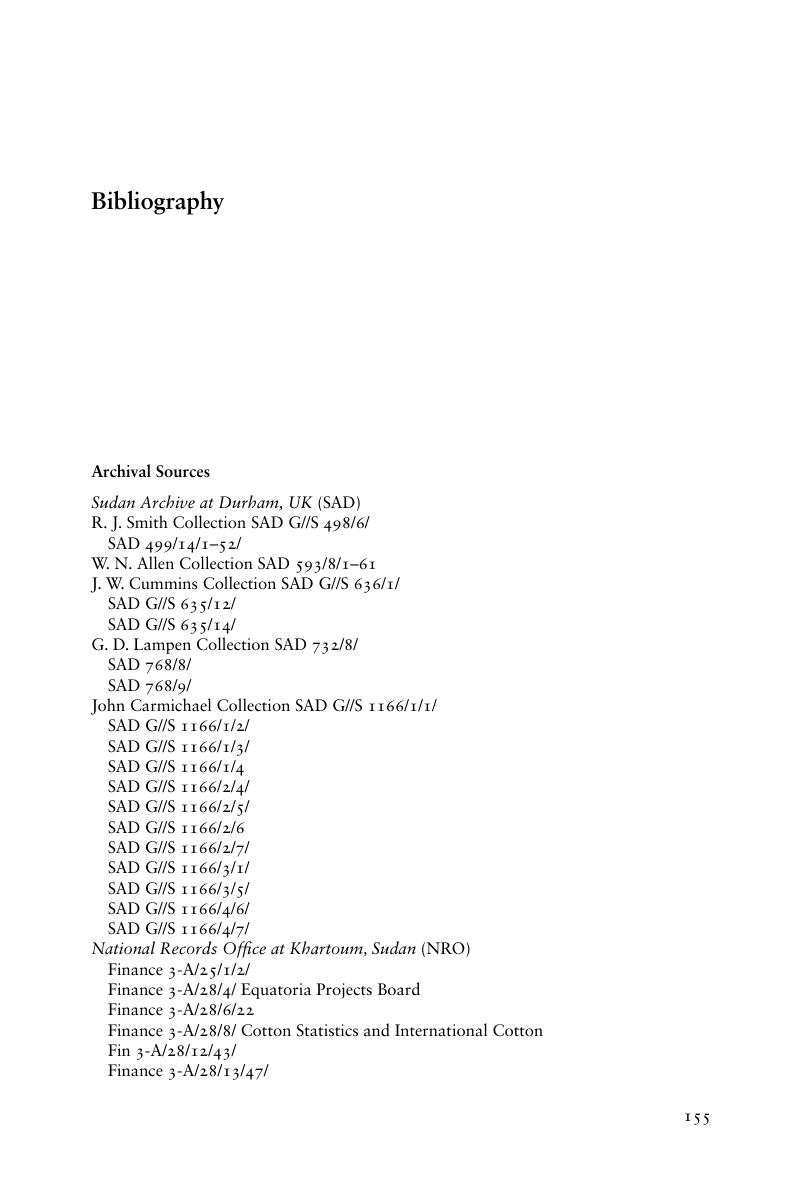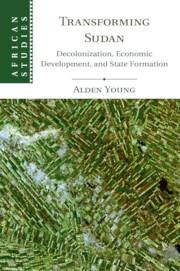Book contents
- Transforming Sudan
- African Studies
- Transforming Sudan
- Copyright page
- Contents
- Acknowledgments
- Introduction: The Economizing Logic of the State
- 1 From Colonial Economics to Political Economy, 1820–1940
- 2 Planning and the Territorial Perspective, 1945–1951
- 3 Calculable Development, 1951–1954
- 4 The New Finance Officials, 1954–1958
- 5 The Nation, in Whose Name They Could Act: The Military and National Income Accounting, 1958–1964
- 6 A Nation-State Alone Cannot Transform Its Destiny, 1964–1966
- Conclusion: Toward a New African Economic History
- Bibliography
- Index
- African Studies
- References
Bibliography
Published online by Cambridge University Press: 17 November 2017
- Transforming Sudan
- African Studies
- Transforming Sudan
- Copyright page
- Contents
- Acknowledgments
- Introduction: The Economizing Logic of the State
- 1 From Colonial Economics to Political Economy, 1820–1940
- 2 Planning and the Territorial Perspective, 1945–1951
- 3 Calculable Development, 1951–1954
- 4 The New Finance Officials, 1954–1958
- 5 The Nation, in Whose Name They Could Act: The Military and National Income Accounting, 1958–1964
- 6 A Nation-State Alone Cannot Transform Its Destiny, 1964–1966
- Conclusion: Toward a New African Economic History
- Bibliography
- Index
- African Studies
- References
Summary

- Type
- Chapter
- Information
- Transforming SudanDecolonization, Economic Development, and State Formation, pp. 155 - 172Publisher: Cambridge University PressPrint publication year: 2017



